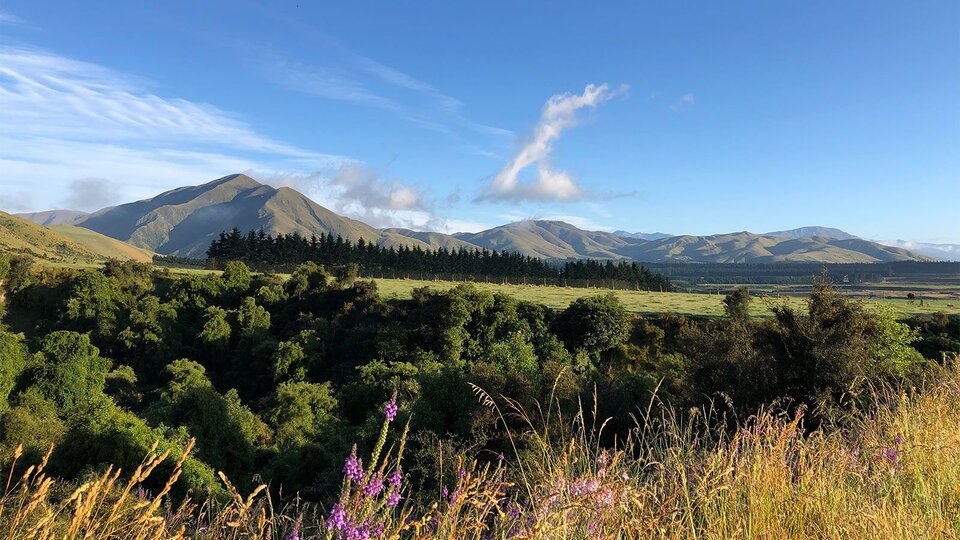Why YOU should go abroad
Global Experiences provides you with an opportunity to engage directly with a range of cultures and ecosystems, while acquiring skills and knowledge to help tackle global challenges.
"Earth's natural resources know no boundaries. What connects Nebraska to the rest of the United States ── our land, water, wind and wildlife ── are the same resources that connect us to those halfway around the world, on another continent, in another country, in another community. How we use, preserve and protect our natural resources affect the entire global community ── not just us, and the best way to grow our understanding of that global connection is to see it for oneself.
Our Global Experiences programs help students see the environmental problems we all face ── conservation unbalance, climate change, limited water supplies ── and their solutions from someone else's eyes. It opens the door to thought and discovery they may not have experienced of otherwise. Global Experiences also gives our students the confidence and experience to tackle future jobs in natural resources at home or abroad."
─ John Carroll, Director
When to go Abroad
| Year | Term | Recommended Student Action |
|---|---|---|
| Year 1 | Fall-Spring Summer | Apply for the Global Experiences Planning Scholarship Begin researching Global Experiences programs. Ready to go abroad in the summer? Apply to Global Experiences programs! Option 1: Complete a summer Global Experiences program |
| Year 2 Optimal year to go abroad for a semester | Fall-Spring | Apply for the Global Experiences Planning Scholarship Option 2: Complete a winter break, spring break or semester Global Experiences program |
| Summer | Option 3: Complete a summer Global Experiences program | |
| Year 3 Optimal year to go abroad for a semester | Fall - Spring | Option 4: Complete a semester, winter break, spring break, or post-spring Global Experiences program |
| Summer | Option 5: Complete a summer Global Experiences program | |
| Year 4 | Fall No spring semester option if graduating in May | Option 6: Complete a fall or winter break Global Experiences program but be sure to talk with your academic advisor about important deadlines. |
General Academic Advice
Global Experiences encompasses any type of overseas academic experience: from traditional classroom-based learning at a foreign university, to short programs led by UNL faculty, to independent field research or internship programs.
It is essential to plan ahead and incorporate your experience into your degree plan. Keep in mind that your academic advisor and college requirements are your primary resources for your academic questions and planning.
Although some of your classes must be taken at UNL, many of your general education requirements along with some of your major requirements can be completed through Global Experiences. In SNR, many students complete their ACE 9 “Global Awareness and Knowledge” requirement through a UNL approved Global Experiences program. Some SNR students have a second major or minor in a foreign language, and use these experiences to meet those requirements.
Meet with your Academic Advisor
You can schedule an individual appointment with Sara Winn or Elyse Watson using the Student Success Hub system. You can also schedule an appointment by calling: 402-472-0636. Your academic advisor will help you determine how specific Global Experiences credit will apply directly to your degree.
Key Questions to ask your Academic Advisor
- What are my remaining degree requirements?
- How many elective credits (lower vs. upper division) do I have left to complete my major?
- What remaining prerequisites must I fulfill, and how will Global Experiences impact my progress? Do I need to take specific classes the term I am abroad in order to graduate on time?
- Which of my remaining degree requirements could I complete abroad? Are there any that I cannot take abroad?
- How many credits can I bring back toward my major/minor? Is there a residency requirement I need to be aware of before I go abroad?
- Can I receive academic credit for an internship or research abroad?
Meet with the Global Experiences Office
Your Global Experiences Coordinator, Trish Manga, can answer your questions about specific programs, talk you through the application process, and help you find funding resources. You can schedule an appointment using the Student Success Hub system. You can also schedule an appointment by calling: 402-472-5358.
Key Questions to ask the Global Experiences Office
- What are the eligibility requirements for my program(s) of interest?
- What is involved in the application and preparation for my program(s) of interest?
- What courses are available on my program? How does the transfer credit evaluation process work?
- What is the cost of participating in my program(s) of interest? What do I need to consider in preparing an estimated budget for my program(s) of interest, and what expenses do I need to plan for up front?
- Where can I find more information about scholarships and financial aid?
- What type of support will be available abroad?
Student Testimonial

Hunter Lee
Major: Fisheries and Wildlife
Program: UNL Faculty-Led: Wildlife Conservation
Country: Namibia
“The importance of doing an Global Experiences program during college would be, being able to meet new people and having an experience of a lifetime. Not very many people have the opportunity to travel around the world, the Global Experiences program allows you to do this and it is something you will never forget. You can meet some amazing people through your trip that can later on help you throughout your life and have a big impact. Doing this during college can also help you find out if you are in the right program for yourself as you get more hands-on experience than being in a classroom!”
“Doing a faculty-led program has many benefits. You can get very close to knowing your professor. That professor can later on help you get an internship, or write you a good letter of recommendation. If that person has done that Global Experiences program for awhile, they can really help navigate the area you are in and give some very good tips for that place if you ever go out on your own or with a group. Having a faculty-led program can make you feel less worried about the trip as well since you know that that person has been there before and knows what they are doing.”
Recommended Programs
Although Natural Resources majors can participate in a wide range of Global Experiences programs, the School of Natural Resources recommends the following programs:
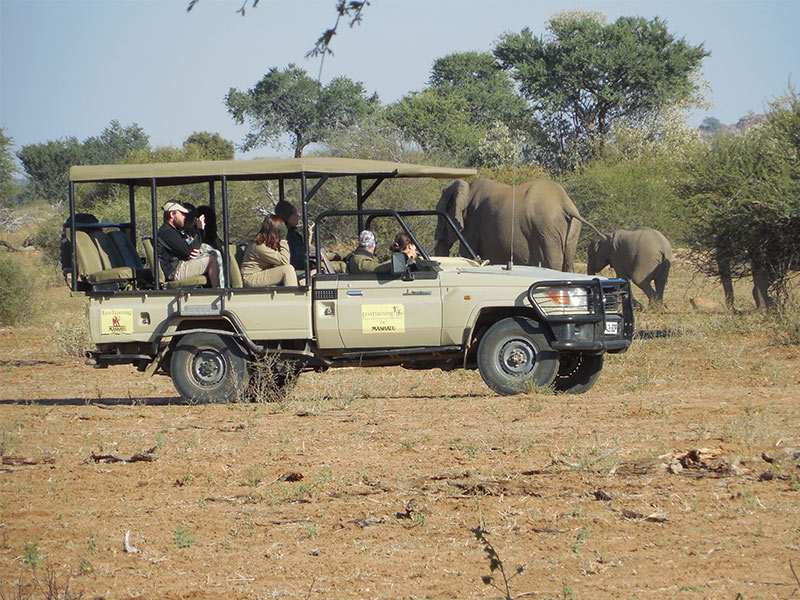
South Africa - Wildlife Conservation in Southern Africa
Program Type: UNL Faculty-Led
Available Term(s): Summer
Location: Kruger National Park, South Africa
Course number: NRES 492
Unique Features: The Makuleke Concession of Kruger National Park represents the diversity of modern conservation issues in Africa, including wildlife such as elephants, that conflict with local villages and agriculture. On this month-long program, see a variety of African wildlife while learning about the challenges South Africa faces during this period of rapid change.
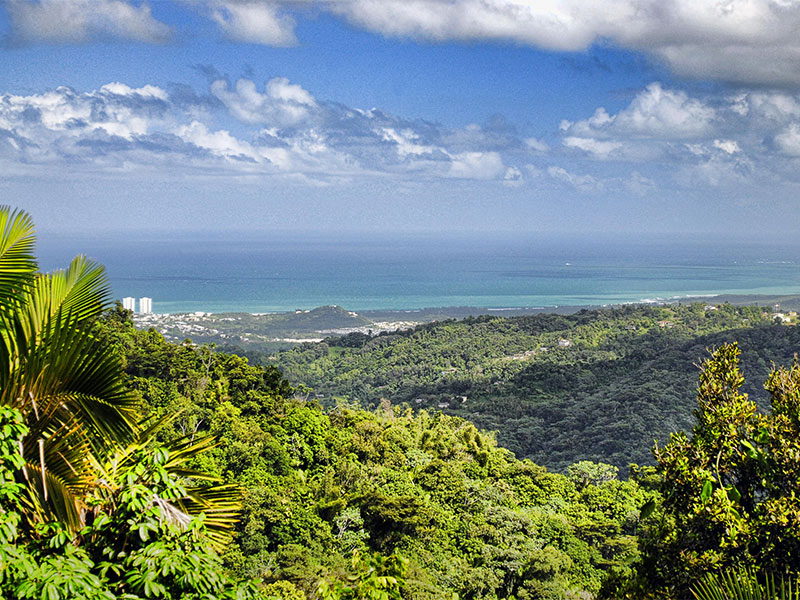
Tropical Ecosystems of Puerto Rico
Program Type: UNL Faculty-Led
Available Term(s): Spring Break
Location: Puerto Rico (U.S. territory)
Course number: NRES 492
Unique Features: Observe components of tropical ecosystems, investigate major ecosystems of an island system, and gain an understanding of the influence of tropical island geology and precipitation on biodiversity structure and sustainable systems.
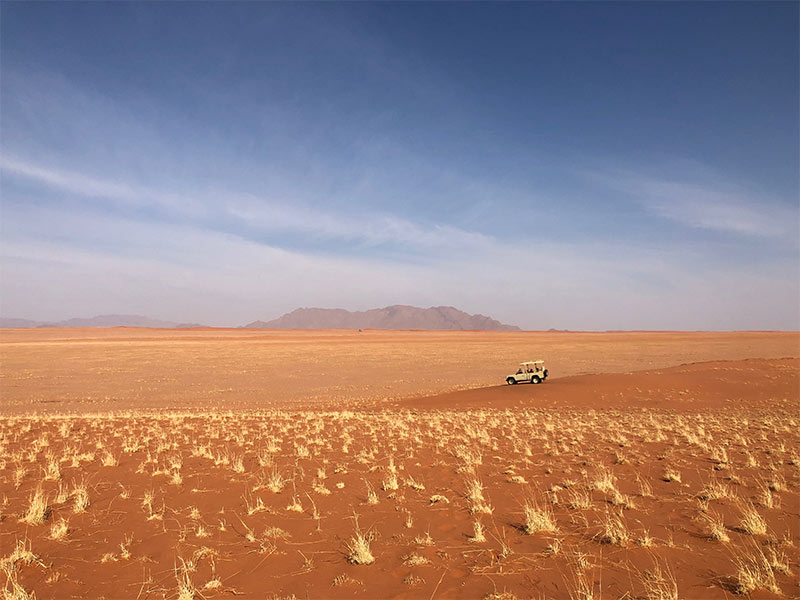
Namibia - Wildlife Conservation
Program Type: UNL Faculty-Led
Available Term(s): Summer (2021)
Location: Namibia
Course number: NRES 492
Unique Features: Observe the varied approaches to conservation and gain first-hand experience in a country that has taken up the challenge to save wildlife species of serious concern. Visit Etosha National Park (one of Africa's major wildlife refuges) and the Cheetah Conversation Fund, and participate in hands-on exercises of radio-telemetry, wildlife surveys, desert ecology, termite ecology, and more.
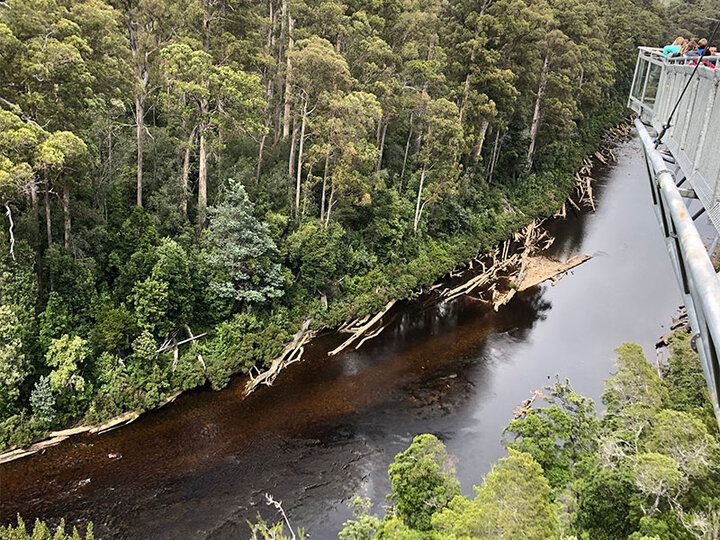
Australia - Agriculture and Natural Resources Program
Program Type: UNL Faculty-Led
Available Term(s): Winter (Spring Semester course)
Location: Sydney and Melbourne, Australia & Hobart, Tasmania
Course number: AGRI310, NRES 492
Unique Features: For three weeks, travel the country learning about Australia's wildlife conservation efforts, including those to save the endangered Tasmanian devil. Explore food industries from vineyards and lavender fields to fisheries and oyster farms.
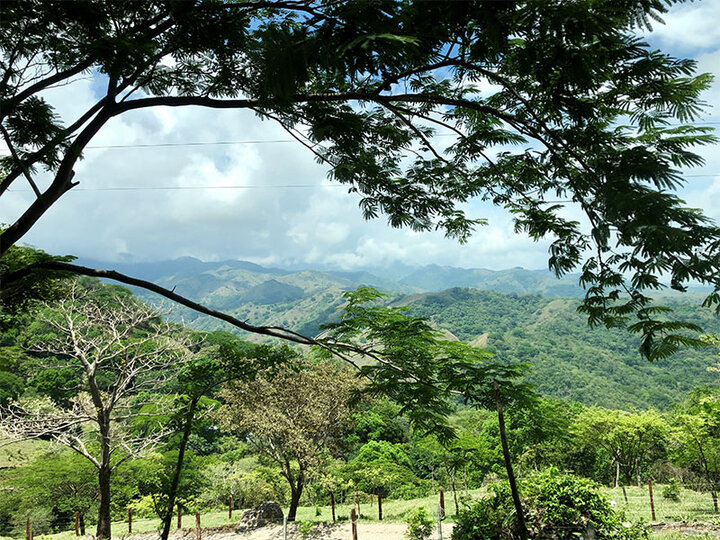
Worldstrides: Costa Rica - Spanish Language, Liberal Arts & Environmental Studies
Program Type: Affiliated
Available Term(s): Fall, Spring, Academic Year, Summer
Location: San Jose, Costa Rica
Previously Approved Courses:
| Code | Course Name | Contact Hours | Credit Hours | UNL Course |
|---|---|---|---|---|
| ENV4030 | Agroecology and Sustainable Food Systems | 60 | 4 | NRES 4XX |
| MKTG3150 | Sustainable Consumption & Production | 48 | 3 | AECN 3XX ENVR 3XX |
| ENV3190 | Tropical Marine Biology | 60 | 4 | NRES 3XX |
| SUSD3000 | Sustainable Lifestyles | 48 | 3 | ENVR 3XX |
| ENV3044 | Tropical Ecology | 60 | 4 | NRES 3XX |
| ENV3120 | Land Vertebrates of Costa Rica | 60 | 4 | NRES 3XX |
| ENV3100 | Tropical Birds (Orinthology) | 60 | 4 | NRES 3XX |
Unique Features: Experience the natural beauty of Costa Rica while living in its historic capital, San José. Take courses in English or Spanish at Veritas University alongside local students. Subjects offered include environmental studies, conservation, sustainability, as well as other options. Spanish classes are available at all levels, and Fall students may take an intensive month session. Excursions to cultural and environmental locations of interest are included, and you can add a service learning opportunity.
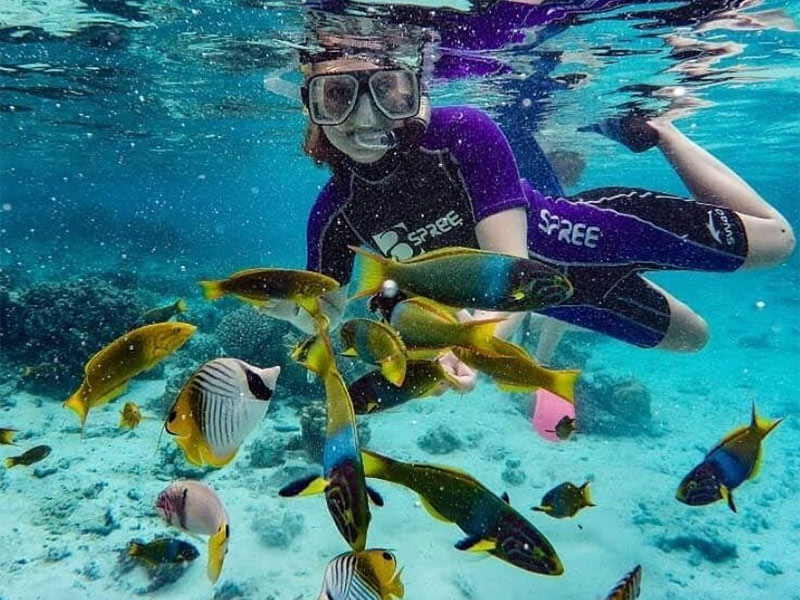
IES: Ecuador - Summer Environmental Studies
Program Type: Affiliated
Available Term(s): Summer
Location: Quito, Ecuador & Galápagos Islands
Previously Approved Courses:
| Code | Course Name | Credit Hours | UNL Course |
|---|---|---|---|
| ES 330 | Environmental Issues: Conservation and Public Policy in Ecuador | 3 | NRES 3XX |
| ES 360 | Ecuadorian Ecosystems | 3 | NRES 3XX |
Unique Features: Over the course of this 3-week program, explore one of the most ecologically diverse countries in the world. Based in Quito, the program includes course-related trips such as Galápagos Islands, the Amazon region, and the Andes highlands. Take two environmental science courses in English and a Spanish language course, and experience local culture with your homestay hosts.
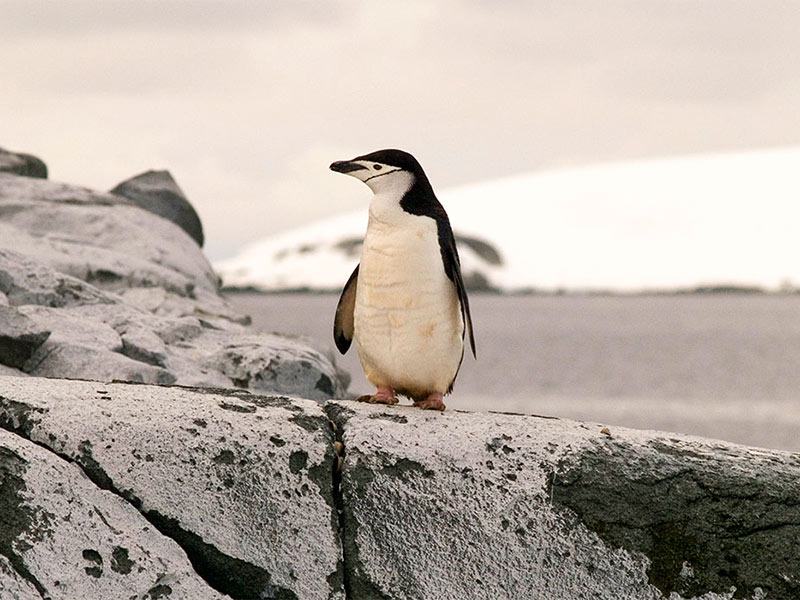
SIT: Patagonia & Antarctica - People, Environment, and Climate Change
Program Type: Affiliated
Available Term(s): Fall, Spring, Academic Year
Location: Argentina, Chile & Antarctica
Previously Approved Courses:
| Code | Course Name | Credit Hours | UNL Course |
|---|---|---|---|
| ISPR 3000 | Independent Study Project | 4 | NRES 399 |
| ENVI 3005 | Climate Change and Marine Biology in Southern Patagonia & Antarctica | 3 | NRES 3XX |
| ENVI 3500 | Environmental Research Methods and Ethics | 3 | NRES 3XX |
| ENVI 3000 | Socio-Ecological Dynamics & Conservation in Southern Patagonia & Antarctica | 3 | ENVR 3XX |
| SPAN 2503 | Spanish for Natural Science II | 3 | SPAN 2XX |
Unique Features: From your home base in Ushuaia, the southern-most city in the world, study the biodiversity and ecology of Patagonia and Antarctica through excursions around the region, including a 10-day boat expedition to and around the Antarctic Peninsula. Classes are taught in English and Spanish, and students will participate in an 8-week homestay. For the last four weeks of the program, complete an internship with a local organization or an independent study project.
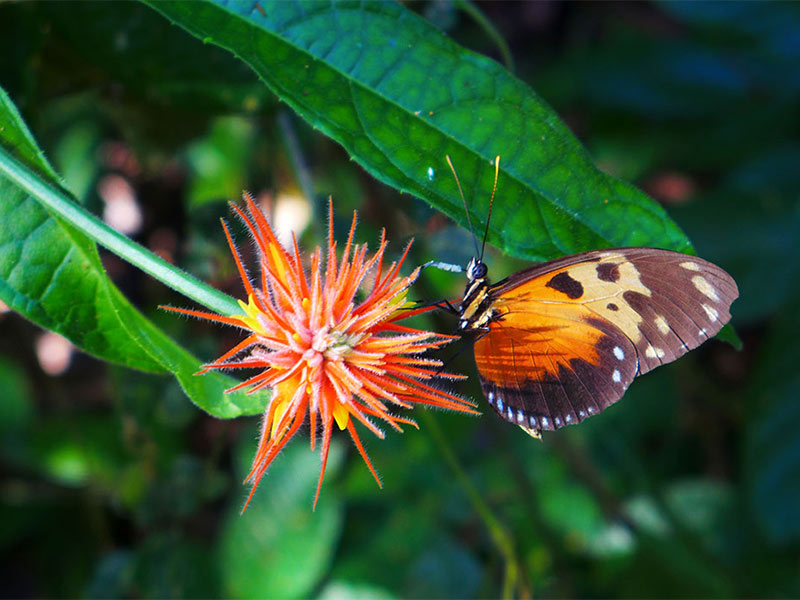
SIT: Panama - Tropical Ecology, Marine Ecosystems, and Biodiversity Conservation
Type: Affiliated
Available Term(s): Fall, Spring, Academic Year
Location: Panama & Costa Rica
Previously Approved Courses:
| Code | Course Name | Credit Hours | UNL Course |
|---|---|---|---|
| ISPR 3000 | Independent Study Project | 4 | NRES 496 |
| ENVI 3005 | Comparative Tropical Ecology | 3 | NRES 3XX |
| ENVI 3500 | Environmental Research Methods and Ethics | 3 | NRES 3XX |
| ENVI 3000 | Human Ecology & Conservation | 3 | NRES 2XX |
| SPAN 1003 | Spanish for Natural Science I | 3 | SPAN 1XX |
Unique Features: Study the biodiversity of Panama and Costa Rica alongside local professors and organizations, conducting fieldwork throughout a variety of complex ecosystems in the region. Coursework is taught in English, and students take a Spanish course covering scientific terminology necessary for the program. Topics include tropical forest dynamics, marine and coastal ecosystem connectivity, and resource use, including indigenous resource use. Students will also participate in several short-term homestays in rural communities as well as a longer, 3-week homestay in Panama City.
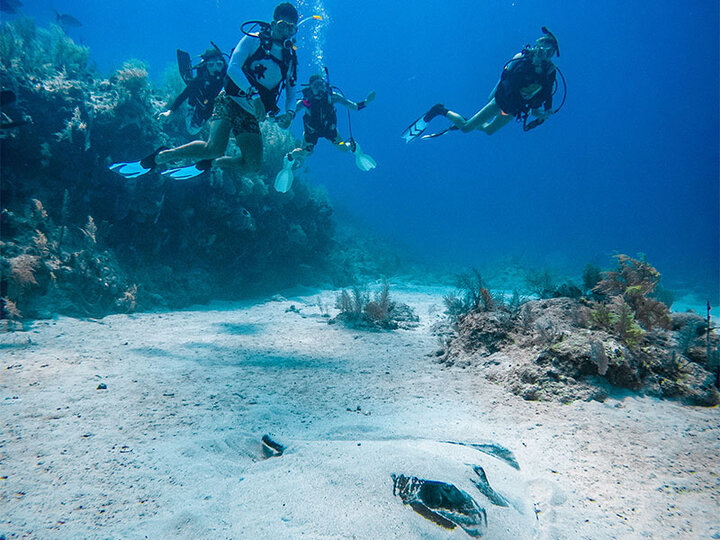
SFS: Turks and Caicos Islands - Fundamentals of Marine Conservation
Program Type: Unlisted
Available Term(s): Summer
Location: Turks and Caicos Islands
Relevant Courses Offered:
| Code | Course Name | Credit Hours |
|---|---|---|
| SFS 3530 | Tropical Marine Ecosystems: Monitoring and Management | 4 |
Unique Features: Explore the spectacular reefs and turquoise waters of South Caicos as you learn about environmental issues and policies affecting these ecosystems and the island community. Learn about marine ecology and conservation, coastal management, sustainable tourism and fisheries practices, and marine protected areas. Live and learn at the SFS Center, located next to the ocean.
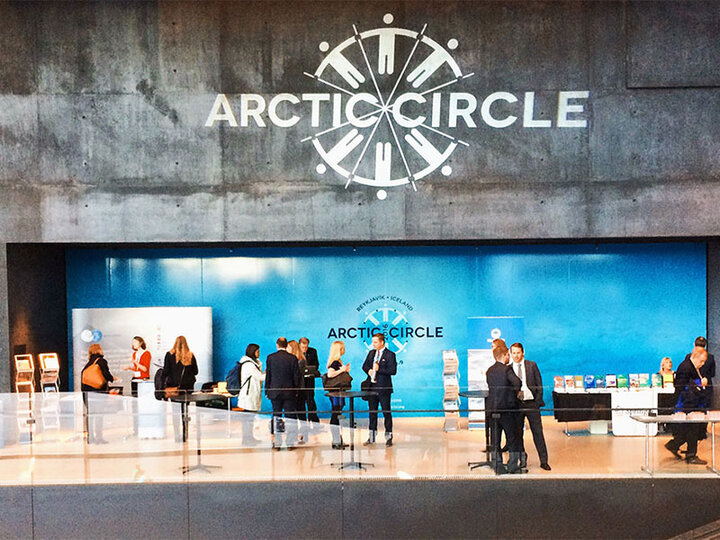
SIT: Iceland & Greenland - Climate Change and the Arctic
Program Type: Affiliated
Available Term(s): Fall, Spring, Academic Year
Location: Iceland & Finland
Relevant Courses Offered:
| Code | Course Name | Credit Hours |
|---|---|---|
| ENGR 3000 | Climate Modeling and Carbon Management | 3 |
| ENVI 3000 | The Arctic: Changing Ecosystems and Resilience | 3 |
| ENVI 3500 | Research Methods and Ethics in the Arctic | 4 |
| ISPR 3000 | Research Project in Arctic Climate Protection | 6 |
Unique Features: Travel to Iceland to study climate models, carbon management, and the impact of climate change on Arctic ecosystems and societies. Through excursions around Iceland and a short trip to Finland, learn about practical adaptations to climate change in the Arctic region. Students will complete a research project on climate issues and take short classes on conversational Icelandic and Finnish. The program includes a short homestay in an Icelandic fishing village and excursions to natural points of interest, such as glaciers, geysers, geothermal fields, and fjords.
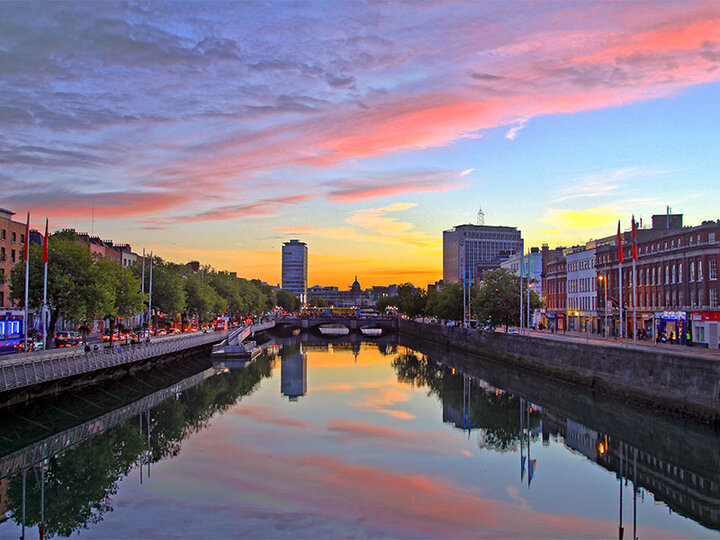
Worldstrides: Ireland - Business, Humanities, Agriculture & STEM at University College Dublin
Program Type: Affiliated
Available Term(s): Fall, Spring, Academic Year
Location: Dublin, Ireland
Previously Approved Courses:
| Code | Course Name | ECTS | UNL Course | Credit Hours |
|---|---|---|---|---|
| BSEN 30030 | Air Pollution | 5 | BSEN 3XX | 3 |
| BSEN 30220 | Soil Engineering | 5 | GNCR XXX | 3 |
| BSEN 30280 | Environmental Engineering | 5 | BSEN 326 | 3 |
Unique Features: With its main campus located only 2.5 miles from Dublin’s city center, UCD is a great location to both explore the vibrant culture of Dublin and take rigorous classes in your major. Take courses at UCD alongside local and international students, enrolling in 4 classes from your main school and up to 2 elective courses in other schools. The program includes excursions with other ISA students to locations such as Glendalough, a glacial valley featuring lakes and waterfalls.
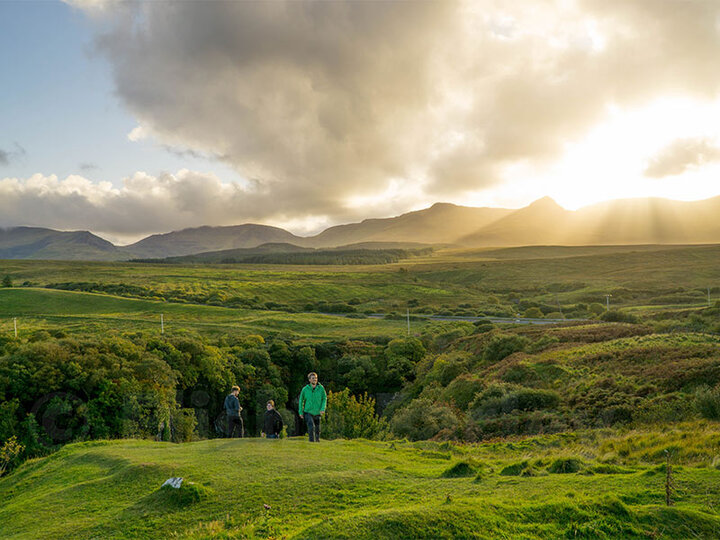
Worldstrides: Scotland - Natural Sciences, Sports Science, Humanities & Business at the University of Stirling
Program Type: Affiliated
Available Term(s): Fall, Spring, Academic Year, Summer (Session 2)
Location: Stirling, Scotland (UK)
Previously Approved Courses:
| Code | Course Name | SCQF Credit | UNL Course | Credit Hours |
|---|---|---|---|---|
| ISSU9GP | Green Politics: Theory and Practice | 10 | POLS 1XX | 3 |
Unique Features: Stirling’s central location allows for easy access to the Highlands of Scotland in the north and major cities to the south. Take classes taught by local professors, alongside local and international students. Course offerings include marine biology, ecology, and oceanography. The program includes excursions with other ISA students to locations such as Edinburgh and the Highlands.

UNL Exchange: England - Lancaster University
Program Type: Exchange
Available Term(s): Fall, Spring, Academic Year
Location: Lancaster, England (UK)
Previously Approved Courses:
| Code | Course Name | Credit Hours | UNL Course |
|---|---|---|---|
| LEC246 | Environmental Physiology | 4 | BIOS 2XX |
Unique Features: Lancaster University is one of the UK’s top universities, specializing in both teaching and research. It is located less than 2.5 hours from London and other major cities, making it an ideal home base for exploring the rest of the UK. Lancaster University’s wide selection of courses makes it easy to fulfill major requirements. Pay UNL tuition and fees, plus housing, living, and travel expenses.
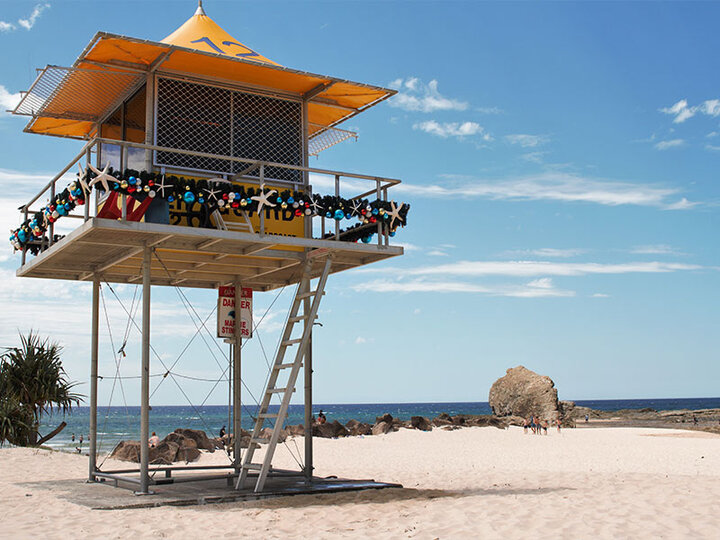
Worldstrides: Australia - Environmental and Marine Science, Business, Psychology & Liberal Arts at James Cook University
Program Type: Affiliated
Available Term(s): Fall, Spring, Academic Year
Location: Townsville, Australia
Previously Approved Courses:
| Code | Course Name | Credit Hours | UNL Course |
|---|---|---|---|
| BZ3740 | Wildlife Ecology and Management | 3 | NRES 311 |
| EV2201 | Tourism and the Environment | 3 | AGRI 2XX |
| EV3406 | Coral Reef Geomorphology | 3 | AGRI 3XX |
Unique Features: Located in Townsville, Australia, JCU has the #1 ranked Marine Biology program in the world, and its research and instruction on the tropics is world-renowned, making this university a beneficial choice for students interested in marine biology and environmental science. Several courses offer field components within surrounding ecosystems such as the Great Barrier Reef and the rainforests of Australia’s Wet Tropics.

Worldstrides: New Zealand - Natural Sciences, Exercise Science, Social Science & Liberal Arts at the University of Otago
Program Type: Affiliated
Available Term(s): Summer
Location: Dunedin, New Zealand
Previously Approved Courses:
| Code | Course Name | Credit Points | UNL Course | Credit Hours |
|---|---|---|---|---|
| BIOL123 | Plants: How They Shape the World | 18 | ENVR 2XX | 3 |
| ENVI311 | Understanding Environmental Issues | 18 | ENVR 3XX | 4 |
| ZOOL222 | Evolutionary Biology | 18 | ENVR 2XX | 3 |
| GEOG285 | Southern Landscapes | 12 | GEOG 4XX | 4 |
Unique Features: Situated in the middle of Dunedin, the University of Otago has a strong emphasis on research, with dozens of field programs open to exchange students. Many courses offered by the university focus on nature-related sciences, including geology, marine science, ecology, botany, and zoology. Excursions with other ISA students will further your exposure to New Zealand’s natural wonders, including a journey south to the Catlins.
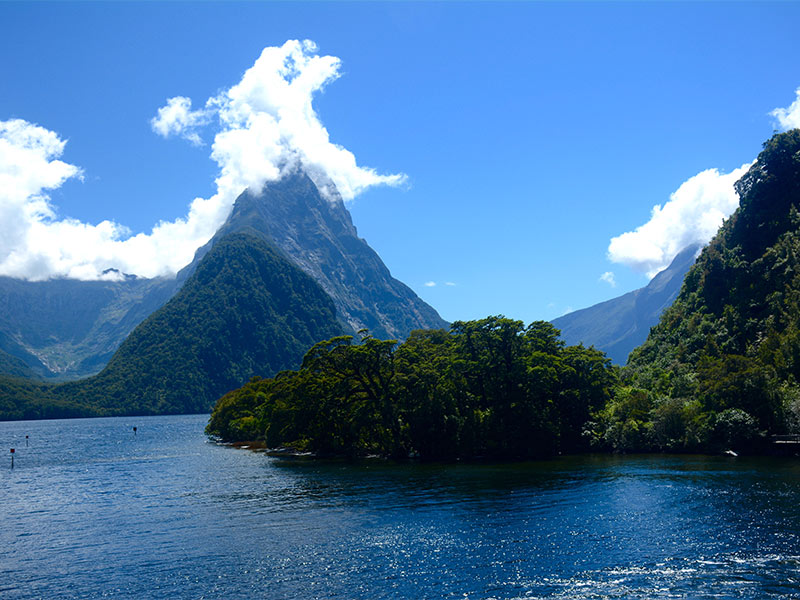
Worldstrides: New Zealand - Engineering, Environmental Science, Business & Liberal Arts at the University of Canterbury
Program Type: Affiliated
Available Term(s): Fall, Spring, Academic Year
Location: Christchurch, New Zealand
Previously Approved Courses:
| Code | Course Name | Credit Points | UNL Course | Credit Hours |
|---|---|---|---|---|
| GEOL112 | Understanding Earth History | 15 | GEOL 103 | 3 |
| GEOL241 | Field Studies B – Field Techniques | 15 | GEOL 340 | 3 |
| GEOL244 | Structural Geology and Global Geophysics | 15 | GEOL 340 | 3 |
| GEOL245 | Earth System Science | 15 | GEOL 4XX | 3 |
Unique Features: Conveniently located near both mountains and the beaches of New Zealand’s eastern coast, the University of Canterbury is internationally recognized for its geology, forestry, engineering, and Antarctic studies departments. Additionally, the university offers for-credit internships in most fields. Travel with other ISA students will include treks to Hanmer Springs and Aoraki Mt. Cook.

SIT: Tanzania - Wildlife Conservation and Political Ecology
Program Type: Affiliated
Available Term(s): Fall, Spring, Academic Year
Location: Tanzania
Previously Approved Courses:
| Code | Course Name | Credit Hours | UNL Course |
|---|---|---|---|
| ISPR 3000 | Independent Study Project | 4 | NRES 3XX |
| ENVI 3000 | Wildlife Conservation and Political Ecology | 4 | NRES 3XX |
| ENVI 3500 | Environmental Research Methods and Ethics | 4 | NRES 496 |
Unique Features: Traverse northern Tanzania as you learn about sustainability, conservation, and the relationship between people and wildlife. This program is designed to display the diverse habitats found in Tanzania, with much of the time spent on the move. Accommodations include a 3-week homestay, hotels, hostels, and camping. Toward the end of the semester, you will work on an independent study project on an original research topic.
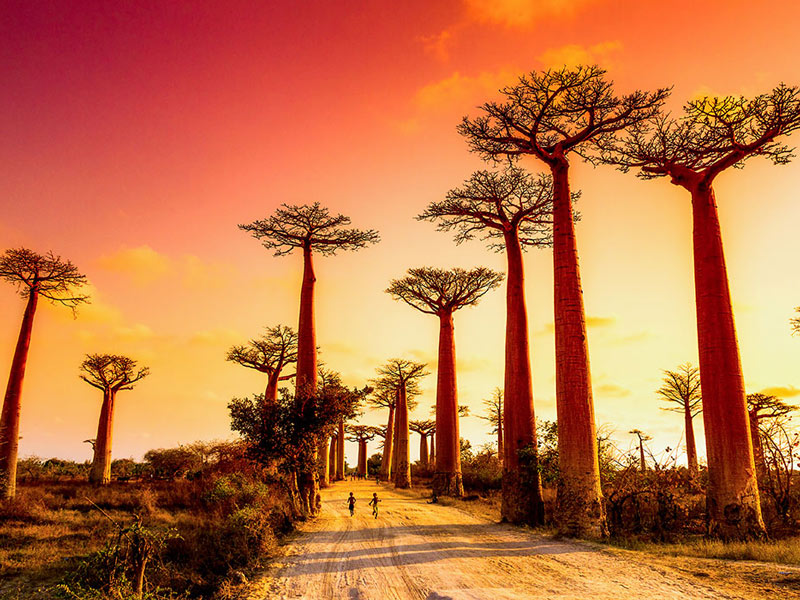
SIT: Madagascar - Biodiversity and Natural Resource Management
Program Type: Affiliated
Available Term(s): Fall, Spring, Academic Year
Location: Madagascar
Relevant Courses Offered:
| Code | Course Name | Credit Hours |
|---|---|---|
| FREN 2003 | French for Natural Sciences | 3 |
| ENVI 3000 | Biodiversity and Natural Resource Management | 3 |
| ENVI 3500 | Environmental Research Methods and Ethics | 3 |
| ISPR 3000 | Research Project in Arctic Climate Protection | 4 |
| ITRN 3000 | Internship and Seminar | 4 |
Unique Features: Isolated from mainland Africa, Madagascar has long been renowned for its unique wildlife and diverse ecosystems. Study this biodiversity along with conservation, environmental and social impacts of development, and Malagasy culture. Most courses are taught in French, with some work done alongside local Malagasy students; language courses include a French class focused on scientific terminology and an introductory course on Malagasy. Pursue an internship or an independent research project during the final month of the program.
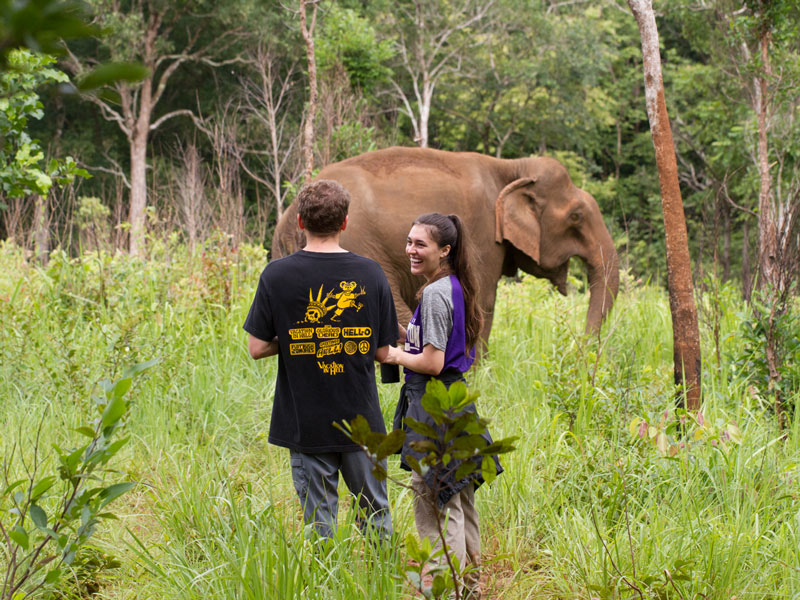
SFS: Cambodia -
Elephants of the Cambodian Highlands
Program Type: Unlisted
Available Term(s): Summer
Location: Cambodia
Relevant Courses Offered:
| Code | Course Name | Credit Hours |
|---|---|---|
| SFS 3111 | Ecology and Conservation of Southeast Asian Elephants | 4 |
Unique Features: Spend the summer studying the endangered Asian elephant in the Keo Seima Wildlife Sanctuary. Explore the history and culture of Cambodia with visits to Phnom Penh and the ancient temples of Angkor, and examine human-wildlife conflict and conservation pressures in the region. Topics include Asian elephant ecology and conservation, wildlife management policies, and the traditional culture of the Bunong people.
